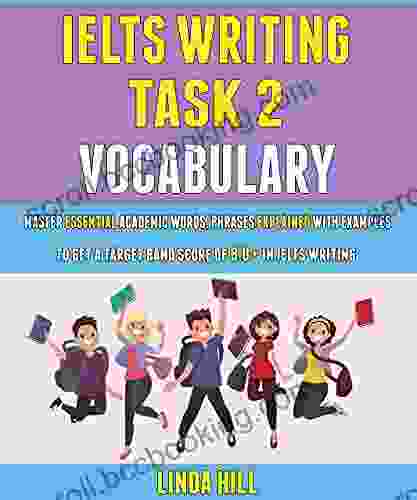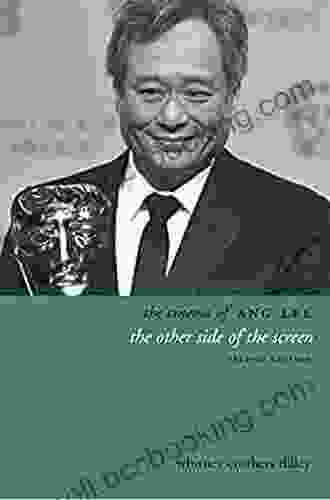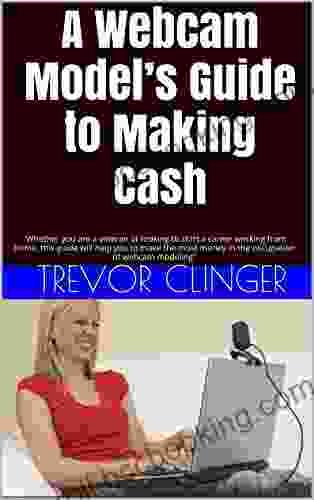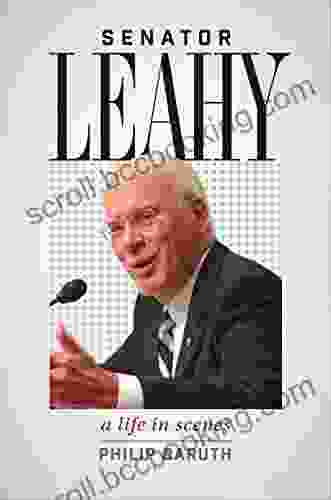Master Essential Academic Words & Phrases: The Ultimate Guide to Enhance Your Writing

Are you tired of struggling to express yourself effectively in academic writing? Do you find yourself fumbling for the right words or resorting to repetitive language? If so, then you need to master essential academic words and phrases.
4.2 out of 5
| Language | : | English |
| File size | : | 28141 KB |
| Text-to-Speech | : | Enabled |
| Screen Reader | : | Supported |
| Enhanced typesetting | : | Enabled |
| Word Wise | : | Enabled |
| Print length | : | 165 pages |
| Lending | : | Enabled |
Academic language is the specialized language used in academic settings, such as universities and research institutions. It is characterized by its formal tone, precise vocabulary, and complex sentence structures. Mastering academic language is crucial for success in higher education, as it allows you to communicate your ideas clearly and persuasively.
One of the most important aspects of academic language is its vocabulary. Academic words are those that are commonly used in academic writing, but are not typically found in everyday speech. These words are essential for expressing complex ideas and conveying subtle nuances of meaning.
In this comprehensive guide, we will provide you with a detailed list of essential academic words and phrases, along with clear explanations and real-world examples. We will cover a wide range of topics, from basic academic terms to more advanced concepts. By the end of this guide, you will have a solid foundation in academic vocabulary and be able to write with clarity and confidence.
Chapter 1: Basic Academic Terms
In this chapter, we will cover some of the most basic academic terms that you need to know. These terms are essential for understanding academic texts and participating in academic discussions.
- Abstract: A summary of a research article or other academic work.
- Analysis: The process of breaking down a complex topic into its component parts.
- Argument: A statement or proposition that is supported by evidence.
- Bibliography: A list of sources that have been used in a research paper.
- Citation: A reference to a source that has been used in a research paper.
- : The final section of a research paper that summarizes the main findings and arguments.
- Data: Information that has been collected through research.
- Discussion: A section of a research paper that interprets the findings and discusses their implications.
- Hypothesis: A tentative explanation for a phenomenon that has been observed.
- : The opening section of a research paper that provides background information on the topic.
- Methodology: The methods that have been used to conduct a research study.
- Results: The findings of a research study.
- Theory: A set of principles that explains a phenomenon.
Chapter 2: Essential Academic Words
In this chapter, we will provide you with a detailed list of essential academic words. These words are commonly used in academic writing and are essential for expressing complex ideas.
- Analyze: To break down a complex topic into its component parts.
- Argue: To present a statement or proposition that is supported by evidence.
- Assess: To evaluate the value or quality of something.
- Compare: To examine the similarities and differences between two or more things.
- Contrast: To emphasize the differences between two or more things.
- Define: To provide a clear and concise explanation of a term or concept.
- Describe: To provide a detailed account of something.
- Discuss: To examine a topic from multiple perspectives.
- Evaluate: To assess the value or quality of something.
- Examine: To investigate something closely.
- Explain: To provide a clear and concise explanation of something.
- Identify: To recognize or name something.
- Illustrate: To provide an example or illustration of something.
- Interpret: To explain the meaning of something.
- Prove: To provide evidence that supports a statement or proposition.
- Summarize: To provide a brief overview of something.
Chapter 3: Essential Academic Phrases
In this chapter, we will provide you with a detailed list of essential academic phrases. These phrases are commonly used in academic writing and are essential for expressing complex ideas in a clear and concise way.
- In addition to: Furthermore, besides.
- As a result: Therefore, consequently.
- In Free Download to: In Free Download to achieve, so as to.
- On the other hand: However, in contrast.
- For example: For instance, such as.
- : To sum up, in summary.
- It is important to note: It is worth noting that, it should be noted that.
- The main purpose of: The primary goal of, the chief aim of.
- The research suggests that: The findings indicate that, the data show that.
- This is because: The reason for this is, the cause of this is.
- To be more specific: In other words, more precisely.
Chapter 4: Using Academic Words and Phrases Effectively
Now that you have a solid foundation in academic vocabulary, it is important to learn how to use these words and phrases effectively in your writing.
Here are a few tips:
- Use precise language: Choose words that convey your meaning exactly.
- Be concise: Avoid using unnecessary words or phrases.
- Vary your vocabulary: Use a variety of words to avoid repetition.
- Use transitions: Use transitional words and phrases to connect your ideas smoothly.
- Proofread your work: Make sure that your writing is free of errors.
By following these tips, you can use academic words and phrases effectively to write clear, concise, and persuasive academic essays.
Mastering essential academic words and phrases is essential for success in higher education. By expanding your vocabulary and learning how to use these words and phrases effectively, you can improve your writing skills and achieve your academic goals.
We hope that this comprehensive guide has been helpful. If you have any questions, please do not hesitate to contact us.
4.2 out of 5
| Language | : | English |
| File size | : | 28141 KB |
| Text-to-Speech | : | Enabled |
| Screen Reader | : | Supported |
| Enhanced typesetting | : | Enabled |
| Word Wise | : | Enabled |
| Print length | : | 165 pages |
| Lending | : | Enabled |
Do you want to contribute by writing guest posts on this blog?
Please contact us and send us a resume of previous articles that you have written.
 Book
Book Novel
Novel Page
Page Chapter
Chapter Text
Text Story
Story Genre
Genre Reader
Reader Library
Library Paperback
Paperback E-book
E-book Magazine
Magazine Newspaper
Newspaper Paragraph
Paragraph Sentence
Sentence Bookmark
Bookmark Shelf
Shelf Glossary
Glossary Bibliography
Bibliography Foreword
Foreword Preface
Preface Synopsis
Synopsis Annotation
Annotation Footnote
Footnote Manuscript
Manuscript Scroll
Scroll Codex
Codex Tome
Tome Bestseller
Bestseller Classics
Classics Library card
Library card Narrative
Narrative Biography
Biography Autobiography
Autobiography Memoir
Memoir Reference
Reference Encyclopedia
Encyclopedia Scott Linden
Scott Linden Terri Jean
Terri Jean Scott Shaw
Scott Shaw Marjan Glavac
Marjan Glavac Vitalis I Valentine
Vitalis I Valentine Stephanie Rosenbloom
Stephanie Rosenbloom Inbal Arieli
Inbal Arieli Eric Rauchway
Eric Rauchway Yan Phou Lee
Yan Phou Lee Luke Nguyen
Luke Nguyen George Stephanopoulos
George Stephanopoulos Erin Meads
Erin Meads Sajni Patel
Sajni Patel Jean Pierre Sylvestre
Jean Pierre Sylvestre Michael Buckley
Michael Buckley Leah Day
Leah Day Ernest Renan
Ernest Renan Zach Davis
Zach Davis Ilyasah Shabazz
Ilyasah Shabazz Sonya Chappell
Sonya Chappell
Light bulbAdvertise smarter! Our strategic ad space ensures maximum exposure. Reserve your spot today!
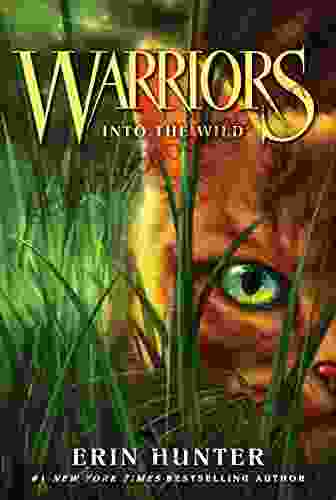
 Benji PowellWarriors Into The Wild: Embark on an Epic Journey with the Warriors of the...
Benji PowellWarriors Into The Wild: Embark on an Epic Journey with the Warriors of the...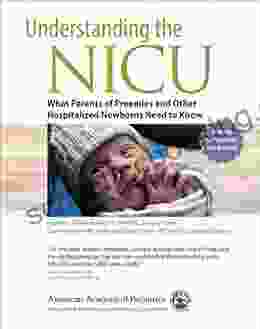
 Frank MitchellWhat Parents of Preemies and Other Hospitalized Newborns Need to Know: A...
Frank MitchellWhat Parents of Preemies and Other Hospitalized Newborns Need to Know: A... Christopher WoodsFollow ·4.9k
Christopher WoodsFollow ·4.9k Roger TurnerFollow ·13.3k
Roger TurnerFollow ·13.3k Gustavo CoxFollow ·8.8k
Gustavo CoxFollow ·8.8k William FaulknerFollow ·16.2k
William FaulknerFollow ·16.2k Emanuel BellFollow ·18.6k
Emanuel BellFollow ·18.6k Douglas FosterFollow ·15.5k
Douglas FosterFollow ·15.5k Jay SimmonsFollow ·2.2k
Jay SimmonsFollow ·2.2k Phil FosterFollow ·13k
Phil FosterFollow ·13k

 Roland Hayes
Roland HayesMagda: A Mother's Love, A Daughter's Redemption - A...
Immerse Yourself in the Captivating True Story...
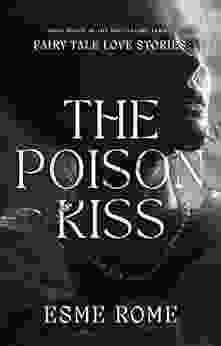
 Spencer Powell
Spencer PowellSnow White Retold: A Tale of Love, Magic, and...
Once upon a time, in...
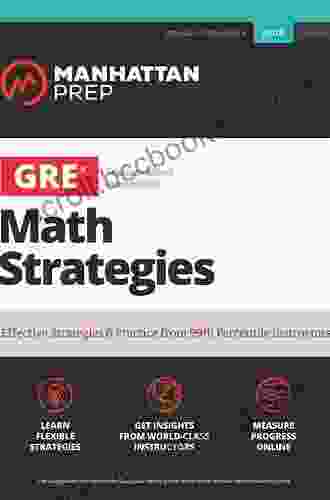
 Jake Powell
Jake PowellMaster the SATs with Effective Strategies from 99th...
The SATs are a challenging exam,...
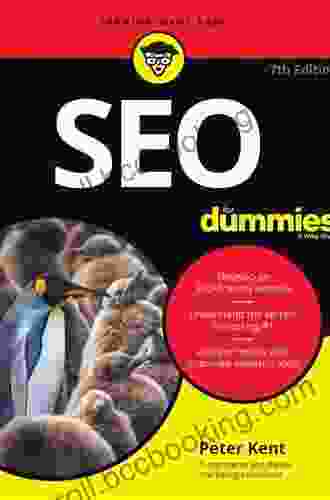
 Brian Bell
Brian BellSEO for Dummies: Unlock the Secrets to Search Engine...
In today's digital...
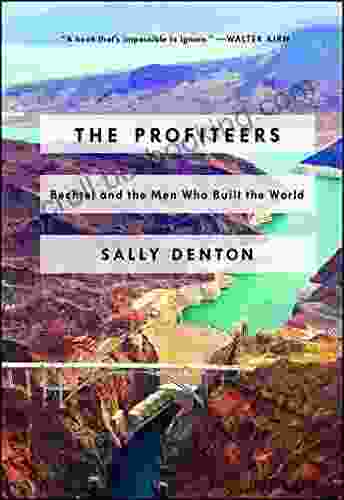
 Jaylen Mitchell
Jaylen MitchellBechtel: Unveiling the Unsung Heroes Who Built the World
In the annals of global infrastructure, the...
4.2 out of 5
| Language | : | English |
| File size | : | 28141 KB |
| Text-to-Speech | : | Enabled |
| Screen Reader | : | Supported |
| Enhanced typesetting | : | Enabled |
| Word Wise | : | Enabled |
| Print length | : | 165 pages |
| Lending | : | Enabled |


